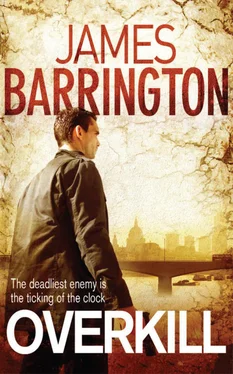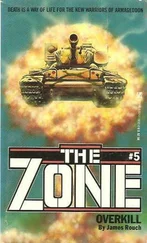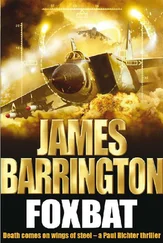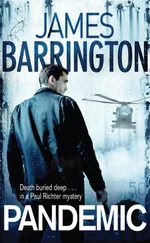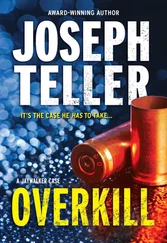In the room at a massive old oak table, ranged with brand-new office chairs, sat two men. On the left was a tall, thin and sharp-featured man wearing the uniform of a lieutenant general in an artillery regiment. The GRU – Glavnoye Razvedyvatelnoye Upravleniye , Chief Intelligence Directorate of the Soviet General Staff, the Russian military intelligence organization – does not have a uniform of its own, and Viktor Grigorevich Bykov continued to wear the uniform of his previous regiment, in which he still nominally served. He was sipping dark Turkish coffee from a fine china cup.
On the opposite side of the table – for the GRU and the KGB have never been willing bedfellows – sat a senior SVR general. Nicolai Fedorovich Modin was the former head of Department V of the KGB – the Executive Action Department responsible for sabotage, kidnapping and assassination. A powerfully built man of medium height, iron-grey hair topping a flat, almost Slavic face, he could have passed in a crowd as just another Russian peasant – as indeed he frequently had done in the early part of his KGB career.
Originally known as the Thirteenth Department of Line F, Department V was reorganized and renamed in 1969, but the KGB slang term for its activities – mokrie dela – remained unchanged. The Russian expression means ‘wet affairs’, because most of Department V’s activities involved the spilling of blood. With the creation of the SVR, the General’s title had changed, but not his duties.
As the SVR interrogator entered the room, Bykov put down his cup. ‘Well?’
The interrogator shrugged his shoulders, walked across the carpeted floor and helped himself to coffee from the American-made percolator. Sipping the bitter liquid, he sat down in a chair at the end of the table. ‘I need this,’ he said.
The GRU officer drummed his fingers on the table impatiently. ‘Well?’
‘Nothing.’
‘Nothing?’
The grey-haired man shook his head, and put his cup down. He passed the clipboard over. Nicolai Modin took it, scanned rapidly through the notes, then put it down on the table and looked up.
Viktor Bykov reached over, took the board and stared at it. ‘Is he…?’ The interrogator nodded. Bykov tossed the clipboard down angrily, and looked with disgust at three small spots of blood on the interrogator’s collar. ‘You should have used drugs. We allowed you adequate time for a thorough interrogation. Your methods are crude and out of date.’
Modin intervened. ‘How the SVR gets its answers is none of your concern, Bykov. We use whatever methods seem most expedient.’
‘I question the expediency of using this animal—’ Bykov said to Modin, gesturing at the interrogator, who was sipping his coffee with a pleasant half-smile on his face ‘—on such a sensitive matter. These days the GRU very rarely has to resort to such crude tactics.’
The interrogator put down his cup and interrupted. ‘You miss the point, General. I did not have time for a thorough interrogation – with a resistant subject it could have taken days or weeks to obtain results with drugs, and you needed answers today. The—’
‘Nonsense,’ Bykov interrupted. ‘You could have—’
‘No, General, I could not.’ The raised voice cut across Bykov’s. The smile had left the grey-haired man’s face, and his blue eyes were steady, bright and totally devoid of humour or compassion. ‘This is my field. I am the expert, and if I tell you something you should listen, and perhaps even learn.’
Modin leaned back in his chair. Despite the seriousness of the situation, and his deep personal dislike of the interrogator, he was almost beginning to enjoy it.
Bykov was furious. ‘How dare you address me in such a manner? I am a lieutenant general in the GRU—’
‘That is precisely why I can address you like that, or in any other manner that I wish. I am the senior SVR interrogator. Neither you nor any other member of the GRU has any power whatsoever over me, and I suggest you remember that.’
‘Enough, both of you,’ Modin interjected. He pointed at the interrogator. ‘You. Finish what you were going to say.’
‘Thank you, General. I would be delighted to do so, and preferably—’ he looked sharply at Bykov ‘—without any further ill-informed interruptions.’ He turned to face the SVR officer. ‘I agree that my methods are crude, but they are rapid, and they do work. All my interrogations have yielded positive results, just as this one has.’
‘Rubbish,’ General Modin said, picking up the clipboard and waving it. ‘There is nothing here that is of the slightest use to us. There is not a single mention of the project.’
The interrogator smiled. ‘Precisely, comrade. Because the subject did not know the answers to any of the questions you instructed me to ask.’
Modin considered this for a moment. ‘Are you sure – absolutely certain?’
‘Quite certain. If he had known, he would certainly have told me. He would have told me anything. Anything at all.’ The interrogator chuckled and picked up his coffee cup again.
Modin stared at him with an expression of acute distaste, then spoke. ‘Get out.’
The smile left the interrogator’s face for an instant, and his blue eyes stared without expression at Modin. Then he gently placed his cup and saucer on the table, stood up and bowed slightly to the senior officer, and left the room without a word.
When the door had closed behind him, Modin looked across the table. ‘He would have known, wouldn’t he?’ he asked.
‘Who?’ Bykov was unsure what the SVR officer meant.
‘The Britisher. If anyone here in Moscow had known, it would have been him?’
‘Definitely. In his position, he had to have known. What other reason could he have had for sending his deputy to Sosnogorsk? What other conclusion could we have drawn?’
Modin shook his head. ‘And all for nothing. What a waste.’
There was genuine regret in his voice. Although Nicolai Modin had ordered the termination of many – far too many – men in his long and successful career with the KGB and SVR, he had always been personally satisfied that each of them had deserved to die. His assiduity in checking and double-checking the details of each case before signing the termination order was not just a matter of personal pride; it was also the mark of a professional intelligence officer.
There are few rules in the ‘wilderness of mirrors’, as the clandestine world has been aptly named, but one obeyed by almost every intelligence service is that opposition agents are never terminated without very good reason. This reluctance does not derive from any sense of compassion or respect for human life, but simply from considerations of operational necessity. The ever-present fear is that even a single execution could lead to an escalating spiral of captures and killings – essentially a private war – something that no service would want. The fear is so prevalent that, if a termination is thought to be essential, it is not unknown for the deceased operative’s parent agency to be advised afterwards, with an apology and a justification for the action taken.
Modin had no doubts about the real identity of the man whose body was even then beginning to stiffen in the sub-basement of the building. He knew who he was and the organization for which he had worked, as he had known since the Englishman’s arrival in Moscow. If the interrogation had produced the answers that both he and Bykov had expected, Modin would probably have regarded the man’s death as justifiable, but the results the interrogator had obtained worried and concerned him.
The GRU officer, sensing the uncertainty of the older man, spoke again. ‘Minister Trushenko’s orders were most specific, General. We had no option but to obey – to make sure. It was the only way.’
Читать дальше
